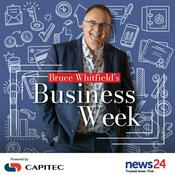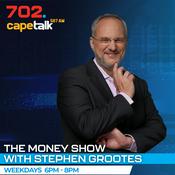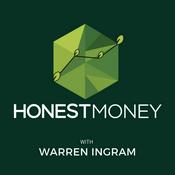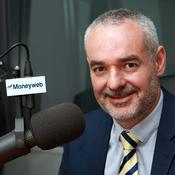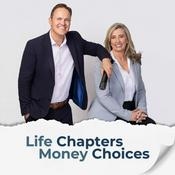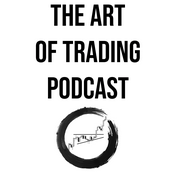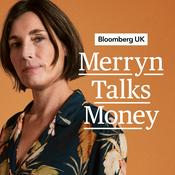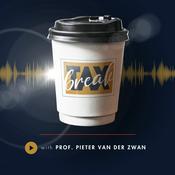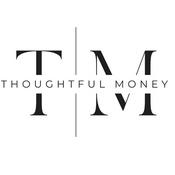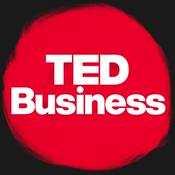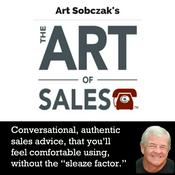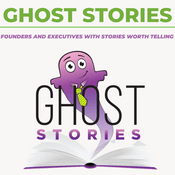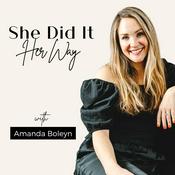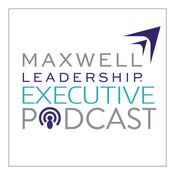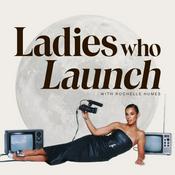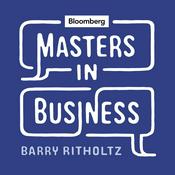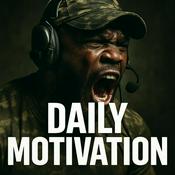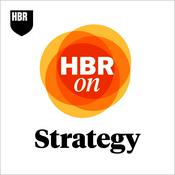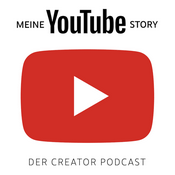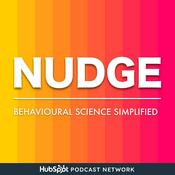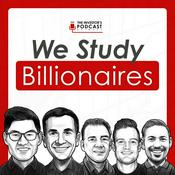29 episodes
- Episode 25: Panama’s Fertility Paradox with Roderick Murray
-Full video episode available on YouTube-
What happens when a country selects cattle for trophies instead of calves?
In this episode, we sit down with Dr. Roderick Murray to unpack hard numbers, hard lessons, and a practical path back to fertility and profitability on grass. Drawing from herd-level observations and long-term production data, we discuss why birth rates have remained stuck between 35 and 60 percent, why age at first calving has stretched past 42 months, and why steers often take more than three years to finish, even as nutrition and management improved.
Roderick explains how a 1990s push for larger frames and heavier carcasses, reinforced by show ring culture and a government backed sire program, unintentionally selecting for later maturity, contributed to cattle that struggle outside high input systems. The result has been declining fertility, calving challenges, udder issues, and animals that perform well on paper but fall short under real pasture conditions.
We also talk about what is changing. Research and producer herds in Panama are re evaluating local Creole genetics for early maturity, fertility, and adaptation, then using thoughtful crossbreeding, including Nelore, to improve reproduction and calf vigor without increasing inputs.
The solution is not always imported. Often, it is already adapted to the environment and available right in your backyard.
If you care about cattle that work where they live, this conversation offers data, perspective, and a clear look at how incentives shape outcomes.
Watch the full video episode on YouTube:
https://youtu.be/SCPLPJD5t48
Connect with Dr. Roderick Murray:
Instagram: https://www.instagram.com/roderickagm
Check out Bos Sires:
https://www.bossires.com/
If this episode made you think differently about fertility, genetics, or how incentives shape outcomes, share it with someone who is open to questioning the status quo. These conversations spread one producer at a time.
Follow or subscribe so you don’t miss the next episode. - Episode 24: Matching Cattle to Country with Matt Robbins
What if the fastest path to profit is choosing cows that match your weather, then letting grass lead the schedule? We sit down with Matt Robbins to unpack how his family left hay dependence, heavy inputs, and misaligned genetics behind and built a resilient, profitable herd for hot, humid Arkansas.
Matt explains why management and genetics have to move together. We dive into a Mashona-led composite built for heat, humidity, and parasites, paired with a 45-day breeding season and Zietsman’s two-three standard that selects for true fertility under pressure. On the ground, ultra-high-density grazing includes about four moves a day at up to a million pounds per acre. This approach drives uniform utilization, deeper rest, stronger stockpiles, and fewer days feeding hay. We talk practical numbers from cow size to supplemental protein costs, and how rotating by recovery, not the calendar, keeps forage quality and animal performance aligned.
This conversation tackles myths head-on. We discuss why EPDs fade across environments, how warm-season forage often labeled “poor” can support excellent production with the right cattle, and where a one-time amendment can ethically and profitably jump-start a tired pasture. The unexpected wins are everywhere. Soils become spongier, native grasses return, drought resilience improves without destocking, and wildlife and water quality benefit as the land breathes again. If you’re curious how to run more cows on the same acres, reduce inputs, and buy back your time with a tight calving window, this is your playbook.
Connect with Matt Robbins:
Facebook: https://www.facebook.com/RobbinsRanch1961/
Check out Bos Sires:
https://www.bossires.com/
If this episode made you think differently about cattle, land, or management, share it with someone who is open to questioning the status quo. These conversations spread one producer at a time.
Follow or subscribe so you don’t miss the next episode.
We keep the main feed focused and intentional. For the raw, unfiltered conversations, find Shooting the Bull on Patreon.
Join us here:
https://www.patreon.com/bossirestalk - Episode 23: Small Acreage, Big Results with Joseph Klotz
What if a 12-acre ranch could outlast drought, dodge input spikes, and still raise fertile, gentle cattle that pay their way? That is the story Joseph Klotz tells from Seely, Texas, a rancher who proves you do not need a thousand acres or a show banner to build a profitable, resilient herd. We dig into how his family’s weekend Brahman operation shaped a lifelong filter: if a cow cannot calve, rebreed, and stay sound without help, she does not stay.
Joseph breaks down his three F’s: function, fertility, and friendly, and shows why moderate-frame cows can deliver more pounds per acre with less risk than giant frames ever could. He walks us through the pivot to regenerative grazing: tighter rotations, long rest, and three years with no synthetic fertilizers, herbicides, pesticides, fungicides, or wormers. The results are tangible and repeatable: deeper roots, more earthworms, cooler soil, minimal flies, and grass that carries through dry spells while neighbors feed hay.
We also explore the move to Red Brahman for dual-purpose advantages, the reliable tenderness and flavor of calves raised on forage and mama’s milk, and the power of strict culling for soundness and temperament. On the business side, Joseph shares a practical approach to profitability: track cost per exposed cow, leverage direct-to-consumer beef, and use old-school, low-cost tools from pickup stock racks to a modified rotary mower to keep margins wide and debt light. Mentorship, windshield time, and a relentless “what and why” mindset tie it all together.
If you are curious about regenerative ranching, Brahman cattle, small-acreage profitability, or how to build soil while selling beef people love, this conversation delivers field-tested insights without fluff. Subscribe, share with a friend who needs a spark, and leave a review to help more producers find smarter, saner ways to ranch.
Connect with Joseph Klotz and Klotz Farms:
Facebook: https://www.facebook.com/joseph.klotz.79
Bos Sires: https://www.bossires.com/klotzfarms
Check out Bos Sires:
Website: https://www.bossires.com/
Bos Sires Catalogs: https://www.bossires.com/sale-catalog-2
Support the Podcast:
If these conversations help you see cattle and land differently, follow or subscribe so you do not miss the next one.
Join us on Patreon for Shooting the Bull — real producers, real talk.
https://www.patreon.com/bossirestalk - Episode 22: What Dairy Can Teach Beef with Ben Gotschall
What happens when a poet comes home to rebuild a family dairy with grass, genetics, and a bison herd as his calendar? Ben Gotschall invites us inside Holt Creek Jerseys, a ranch dairy in the Nebraska Sandhills that treats milk like a seasonal food and manages cows by the rhythm of the prairie, not the demands of a spreadsheet.
We dig into what true seasonal milking does for flavor, nutrition, and quality of life. Calving is timed to the spring flush. Cows are dried off in winter. Once-a-day milking gives families their evenings back. And suddenly June milk tastes like a different food than January milk. It is the kind of system that forces decisions to be proven in pasture, not on paper, and rewards the stockman who pays attention.
Ben breaks down the genetics that actually matter in a grass-only dairy. His milking herd is entirely A2A2. He selects for Kappa casein BB to boost cheese yield and beta-lactoglobulin BB to raise butter output. Jerseys bring efficiency and butterfat, while beef-on-dairy crosses shorten finishing time and bridge the gap between dairy and grass-fed beef markets. Roles within the herd are clear. Milk cows produce nutrient-dense food and breed back within a tight spring window. Nurse cows raise two calves to weaning and must wean 100 percent of their body weight. It is selection pressure that rewards fertility, calm disposition, graze-full minds, and cows that work with the landscape instead of against it.
We also take an honest look at genomic numbers. Ben uses testing when it serves a purpose but warns against chasing indexes that inflate production at the cost of fertility and longevity. He leans on linebreeding to anchor functional traits and raises bulls out of his best cows to prove them on grass. Along the way he explains why dairy grazing is the master class for beef graziers, why low-stress design is worth every minute of planning, and why the milk itself becomes a reflection of the land.
If you care about nutrient-dense food, resilient cattle, and building a life with more margin and fewer inputs, this conversation offers a grounded blueprint for doing dairy differently.
If this episode resonated, share it with someone who is ready to rethink how milk, meat, and grass can work together. The principles matter anywhere. The land responds to those who listen.
Connect with Ben Gotschall and Holt Creek Jerseys:
Website: https://holtcreekjerseys.com/
Clover Cove Ranch: https://clovercoveranch.com/
Bos Sires Page: https://www.bossires.com/bengotschall
Dairy Grazing Apprenticeship: https://www.dga-national.org/
Midwest Graziers Instructional Course: https://www.mgic-professional.org/
Check out Bos Sires:
Website: https://www.bossires.com/
Bos Sires Catalog: International New Bos Sires Catalog (English)
Support the Podcast:
If these conversations help you see cattle and land differently, follow or subscribe so you do not miss the next one.
Join us on Patreon for Shooting the Bull — real producers, real talk.
https://www.patreon.com/bossirestalk Episode 21: Grazing School with Charlie Totton, Courtney Tyrrell & Bart Carmichael
2025/11/12 | 58 mins.Episode 21: Grazing School with Charlie Totton, Courtney Tyrrell & Bart Carmichael
Think you know what your cattle will eat? Watch that certainty crumble when ten heifers meet a “weedy” paddock and turn it into beef and soil armor.
We sit down with Charlie Totton and Courtney Tyrrell, along with educator and rancher Bart Carmichael, to unpack the South Dakota Grassland Coalition 2025 Grazing School, a producer-led, hands-on training where students measure forage, set residue goals, build 24-hour paddocks, and come back later to see if the math holds.
Day one challenges assumptions and teaches grazing math to calculate forage consumption. Day two explores alternatives across calving, nutrition, and herd health. Day three ties it all together into a written action plan you can take home and actually use.
The conversation gets specific: how to size paddocks based on measured forage, why leaving 1,000 to 2,500 pounds of residue builds soil structure, and how palatability shifts with growth stage and density. Then we test water. Using rainfall simulators and ring infiltration tests, the difference between living polycultures and compacted monocultures shows up in clean infiltration versus muddy runoff. With roughly 27,000 gallons per acre per inch of rain at stake, building organic matter becomes a practical water strategy, not a buzzword.
“Recovery” replaces “rest.” “Forbs” replace “weeds.” And “armor” replaces “litter,” reshaping the language that shapes the land.
We also get real about labor, genetics, and drought. Cattle are the tool, trampling, salivating, cycling nutrients, when directed with clear goals and daily moves. Trigger dates help you de-stock before the feed bill owns you, and the right cows—deep, thick, mobile, calm—perform on stockpiled forage without expensive inputs. The Tottons share how intensifying on 10 percent of their ranch during peak growth lets the other 90 percent recover, stretching grazing into winter and reducing both labor and input expenses.
Add mentorship, networking, and producer-led instruction, and you get a system that works in South Dakota, Arizona, or the Northeast, because principles scale even when practices change.
If this one hit home, share it with someone who’s ready to look a little closer at their own country. The real work starts when you slow down, measure, and listen. The land’s not broken. It’s just waiting on better stockmen.
Connect with Courtney Tyrrell and Charlie Totton:
Website: https://www.tottonangus.com/
Facebook: https://www.facebook.com/tottonangus/
Bos Sires: https://www.bossires.com/tottonangusranch
Connect with Bart Carmichael and Principled Land Managers:
Website: https://www.wedgetentranch.com/
Bos Sires: https://www.bossires.com/wedge-tent-ranch
Website: https://www.principledlandmanagers.com/
Check out Bos Sires:
Website: https://www.bossires.com/
Bos Sires Catalog: International New Bos Sires Catalog (English)
Support the Podcast
If these conversations help you see cattle and land differently, follow or subscribe so you don’t miss the next one.
Join us on Patreon for Shooting the Bull — real producers, real talk.
https://www.patreon.com/bossirestalk
More Business podcasts
Trending Business podcasts
About Sustainable Stock: Reviving Legacy Genetics
Sustainable Stock: Reviving Legacy Genetics is a podcast dedicated to exploring the power and potential of traditional cattle genetics while celebrating the ranchers who are bringing these practices back to life. Hosted by Patrick Powers, this podcast connects the past with the present, showcasing the resilience, efficiency, and fertility of the cattle breeds that helped build strong herds in the 1960s and '70s.Each episode features in-depth conversations with ranchers and breeders who are rediscovering and preserving the cattlemen practices that have stood the test of time. These ranchers are committed to using common-sense methods that focus on what truly works, blending the wisdom of the past with modern solutions for sustainable ranching in today’s world.At its core, Sustainable Stock is about returning to the fundamentals—embracing practical, time-tested approaches that prioritize what’s best for the land, livestock, and the rancher. We honor the heritage of ranching and are passionate about creating a future that’s rooted in both tradition and sustainability. Whether you’re passionate about heritage genetics, the future of ranching, or simply interested in the story behind the herd, this podcast is for you.
Podcast websiteListen to Sustainable Stock: Reviving Legacy Genetics, Prof G Markets and many other podcasts from around the world with the radio.net app
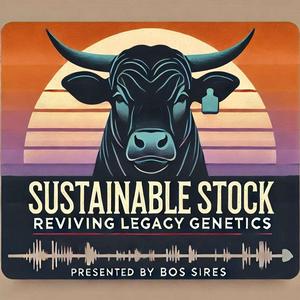
Get the free radio.net app
- Stations and podcasts to bookmark
- Stream via Wi-Fi or Bluetooth
- Supports Carplay & Android Auto
- Many other app features
Get the free radio.net app
- Stations and podcasts to bookmark
- Stream via Wi-Fi or Bluetooth
- Supports Carplay & Android Auto
- Many other app features


Sustainable Stock: Reviving Legacy Genetics
Scan code,
download the app,
start listening.
download the app,
start listening.




